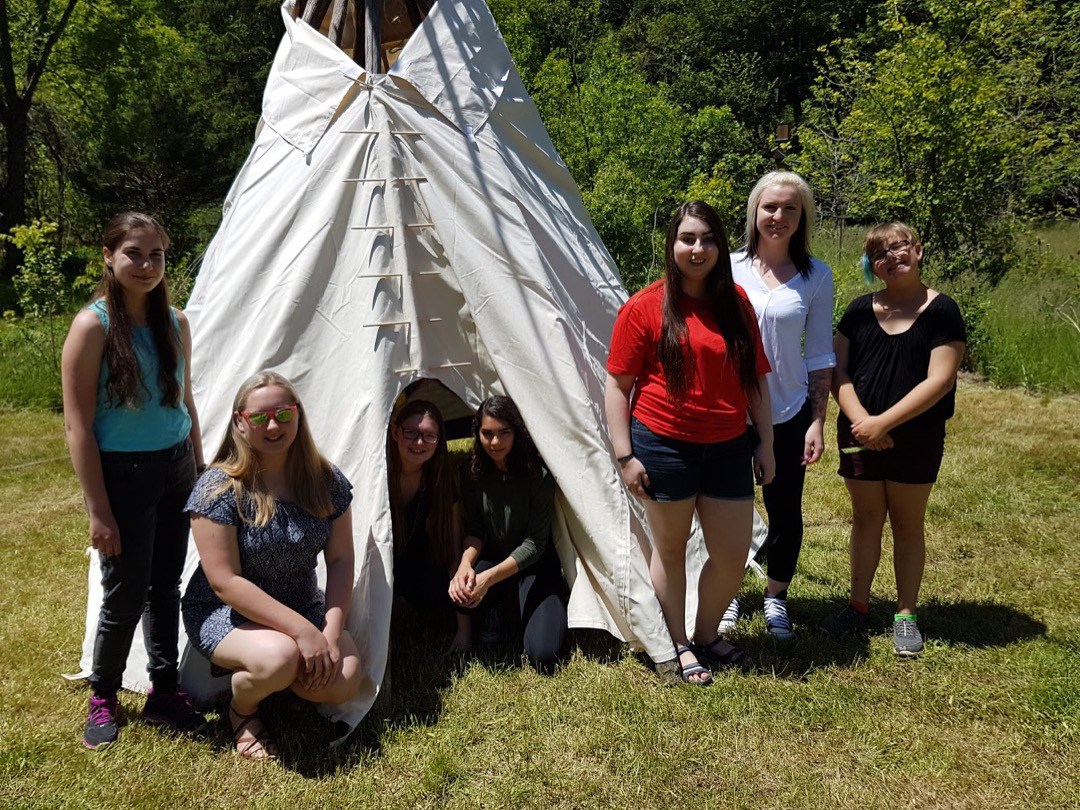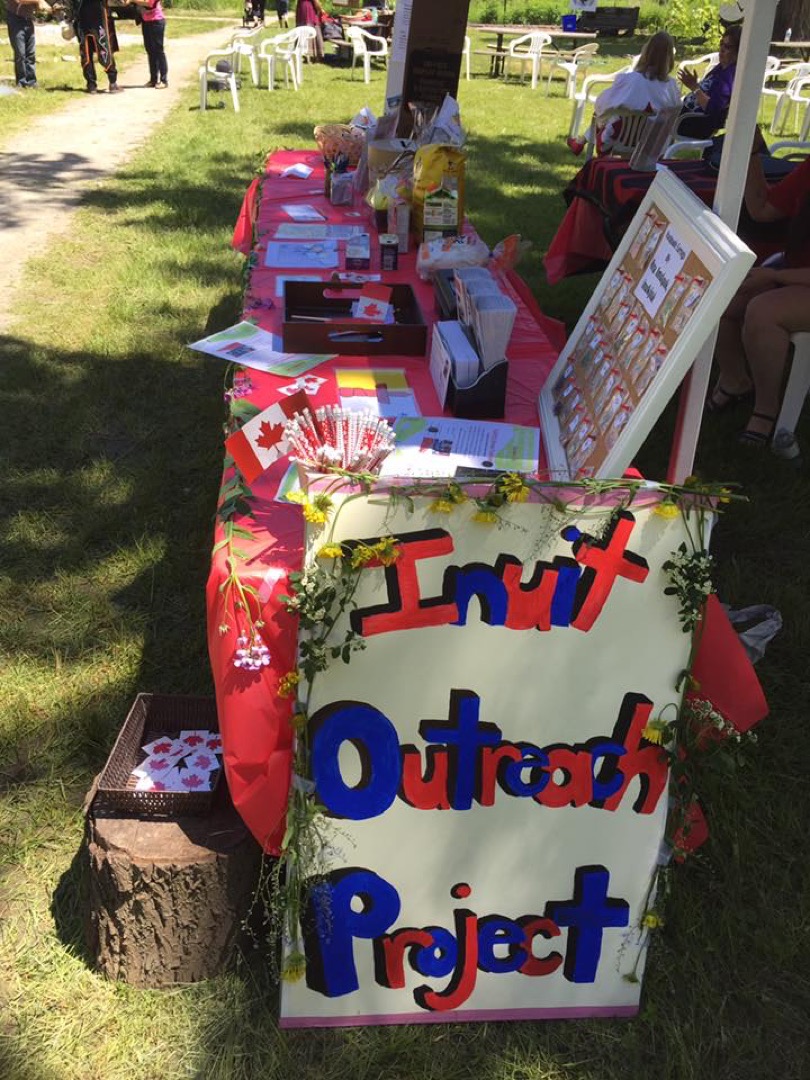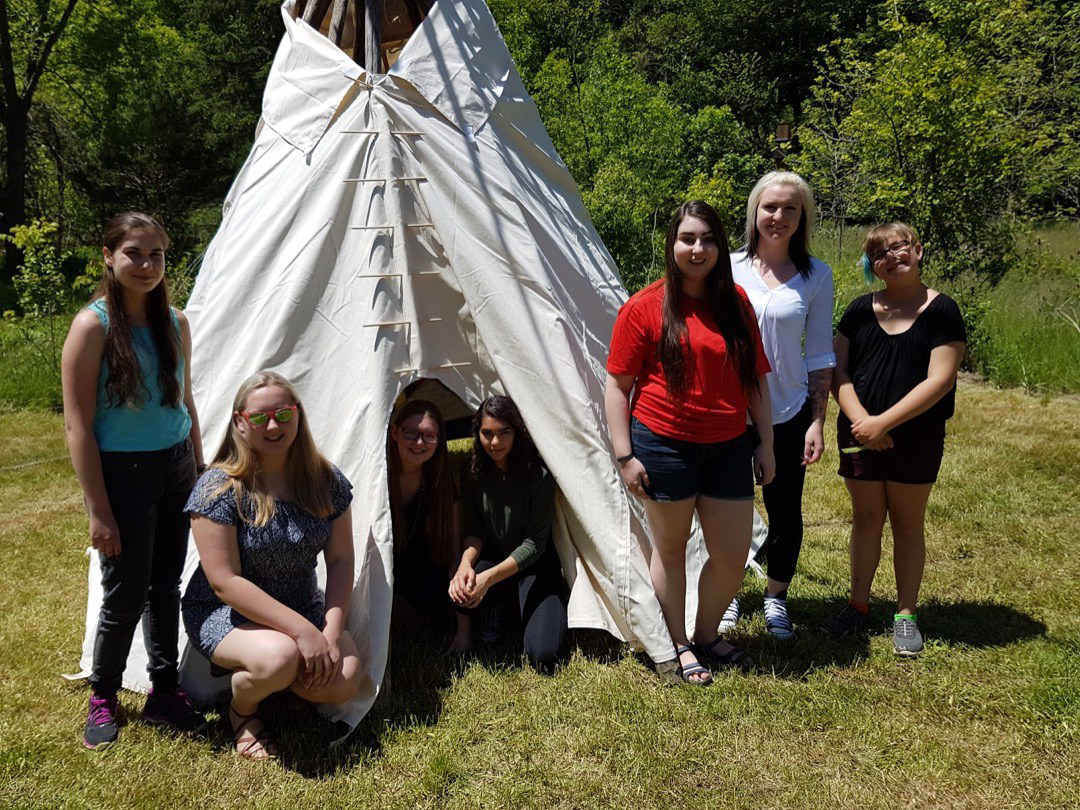
by Georgia Speer-Remes
To celebrate Canada 150, the Norval Community Association (NCA) hosted Canada 150 –Norval on the Credit Festival (NOTCF) on June 3 to create various learning opportunities about a variety of cultures.
Halton Hills is on the traditional territory of the Mississaugas of the New Credit First Nations.
The Halton Hills Inuit Outreach Project (IOP), a non-profit organization helping offset the high cost of living in the North, had a booth at the festival in Willow Park.
My friends and I provided information about IOP. The NOTCF is so important to educate the ones who are not as far along on their learning journeys. I have taken two Indigenous courses at Georgetown District High School, so this day was not to learn about Indigenous people as a whole, but to listen to everyone’s individual stories.
At an event like this, where everyone has a chance to listen and tell their stories, I believe there are more learning opportunities which the average textbook and classroom curriculum does not offer.
Lexie, a friend and volunteer said, “My job was to provide information about IOP. So many people came to our tent and genuinely engaged in conversation, which was very inspiring. It made me realize many people want to be educated about these important issues.”
Another friend, Matea, added, “As a volunteer involved specifically in aid of IOP, it provided an opportunity for the growth of my own personal knowledge, for other volunteers and the general public, as well as expanding the project’s influence through new supporters.”
“One thing really touching,” stated Lexie, “was our discussion of past and current issues, and what we can do to make changes.”
“Involvement in the festival allowed the greater community to recognize IOP and to become part of their work in helping the Inuit communities of Canada,” said Matea.
The most significant activity to me was the Indigenous Blanket Exercise. It is an interactive learning experience that teaches Indigenous rights and history we were rarely taught in school. The two hour workshop covers over 500 years of Canadian-Indigenous history as one of the key steps to reconciliation.

Standing on blankets representing the Indigenous peoples on their land, we watched as some were pushed off or “died” from disease from non-Indigenous peoples. It was a really eye opening experience. After it was all done, we sat in the circle. I could no longer hear chatter around the room as we all sat there in silence.
“The blanket exercise,” explained Lexie, “was the most engaging activity at the festival. It quite literally puts everyone who participates in the places of indigenous peoples throughout the history of injustice. Folding the blankets and creating smaller spaces for participants to stand on figuratively represented the rights, freedoms and lands of the indigenous people.”
During the activity, we read with so much emotion … shedding tears and becoming angered. Afterwards, sitting in a circle of reflection anyone could share how the exercise affected us and changed our views.
“I added to the sharing circle that I could see a future where there is more history to add to the exercise—where there are scrolls to be read that work towards unfolding the blankets and creating justice and reconciliation,” concluded Lexie.
What Lexie said was the key to this whole day—looking forward and putting in place what needs to happen.
Canada’s 150th birthday just passed and for the Indigenous peoples, is it a time to celebrate? Maybe not, but let’s look to the future—to 150 plus.
Georgia Speer-Remes is a high school student in Georgetown, the student representative on the IOP board and IOP’s summer student.
A song about the abuse and events that happened at Canadian Residential Schools. By @Orcina12 https://t.co/tn1XFjvWqX
— InuitOutreachProject (@InuitOutreach) July 10, 2017

Resurrection of Hope in Thundering Waters